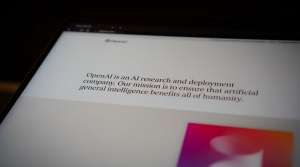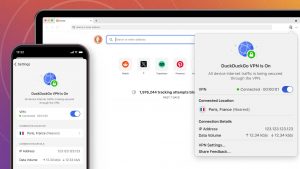Internet Security: An Epic Fail?
![]() One of the major dilemmas the world is facing today is the threat to economic and national security brought about by the advent of computers and the worldwide web. Computer software and the internet might have become the building block of prevailing society– but at the same time has given rise to a new breed of perpetrators called cyber criminals/attackers. The recent data breaches to Google, Epsilon and RSA (EMC’s security division of data management) on top of attacks to government networks and private sectors can create damages way beyond imagination.
One of the major dilemmas the world is facing today is the threat to economic and national security brought about by the advent of computers and the worldwide web. Computer software and the internet might have become the building block of prevailing society– but at the same time has given rise to a new breed of perpetrators called cyber criminals/attackers. The recent data breaches to Google, Epsilon and RSA (EMC’s security division of data management) on top of attacks to government networks and private sectors can create damages way beyond imagination.
Perhaps the biggest buzz we’ve heard recently came from Sony’s PlayStation Network. Reuters reported that an unauthorized person stole names, addresses and possibly credit card data belonging to 77 million account holders on Sony’s PlayStation Network in what could be one of the largest-ever Internet security breaches.
The beginning of these massive online attacks started back in 2009 when Albert Gonzales, a hacker, broke into corporate computer systems including Heartland Payment Systems, TJX Company Inc., 7-Eleven Inc. and Target Co., stealing tens of millions of payment card number. This was followed in 2010 when Google along with 20 other companies were attacked in their operation in China, resulting to intellectual property theft. Researchers also identified a new worm they called Stuxnet that was specifically designed to breach one of Iran’s Natanz enrichment plants’s systems, that which is used to refine uranium. And just this month, online marketer Epsilon reported that its system had been breached and clients’ customer names and email addresses were stolen. Even Facebook is not exempted as it becomes a medium for a malware to attack users by disguising itself as “500 free credits from Facebook.” Below we have an infographic detailing the anatomy of online attacks.
Equifax, a leading provider of credit information, risk management and identity services, warns users that fraud alerts are only partial protection and is not sufficient against data breaches. It’s primarily designed to combat new account fraud (which is by far the most sinister among identity thefts on the internet today). The downside is that hackers can still make use of the information they stole, such as credit card numbers. For tighter security, Equifax recommends the added protection of credit and identity protection monitoring products, such as its own Equifax Complete. It is comprehensive in monitoring daily credits and alerts a user when his/her personal information is flaunting on a fishy tradeoff website.
“Although fraud alerts have long been recognized as one of the strongest methods of identity protection, they simply aren’t enough,” says Trey Loughran, president of Equifax Personal Information Solutions. “Existing account information like credit card numbers are vulnerable to identity thieves even with an active fraud alert. And the longer it takes to detect identity theft, the costlier the damage that can be done.”
The rise of these sophisticated attackers also bred startups such as Unsubscribe.com. Here’s an interview of the company by Kristen Nicole.
A message from John Furrier, co-founder of SiliconANGLE:
Your vote of support is important to us and it helps us keep the content FREE.
One click below supports our mission to provide free, deep, and relevant content.
Join our community on YouTube
Join the community that includes more than 15,000 #CubeAlumni experts, including Amazon.com CEO Andy Jassy, Dell Technologies founder and CEO Michael Dell, Intel CEO Pat Gelsinger, and many more luminaries and experts.
THANK YOU













